#Afro Caribbean alys….
Note
i’m sorry but if i have to see aemond getting with some white girl next season i’m licherally gonna go feral. like alys is a bastard with no specified mother so queen could literally be anything. maybe her mother was from dorne or essos like the possibilities are endless. writers i’m begging you pleaseee take liberties with alys where you can and give us some flavourrr
I’ve said this before but alys looks younger than her age not bc of magic or bathing in blood, but bc she’s not fully white. George literally told me!
Her mother is from the Summer isles
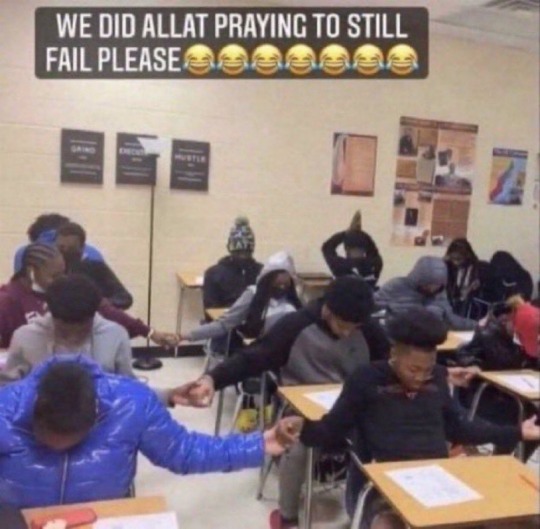
#I very much agree with YOU#im sorry but it would be such a missed opportunity if we get thin white alys…#like they already didn’t stick to the text with Rhaenyra and Helaena being described as gaining weight after child birth#they least they can do is give us SOMETHING with alys#I swear I will do my black alys fic… she’s just a bitch (affectionately) to characterize imo#like I don’t even like the way I wrote her in fmo… I could be nice to myself and say there is nuance.. which we get more of in Pt 5#but still :/#asks and requests#when we get Asian or Afro Arab alys NO ITS SO TRUE!#Afro Caribbean alys….
13 notes
·
View notes
Text

#black family#1970s#black panther party for self defense#dr neely fuller jr#shahrazad ali#marcus garvey#dr joy degruy#divide and conquer#black people gettin exploited#melanin#soul#soul music#soul power#afro#african#caribbean#melanesia#civil rights#rev dr martin luther the king#rosa parks#2pac shakur#afeni shakur#black man black woman black child#black history#Respect The Black Women#Respect The Black Family#Humanity#Ubuntu#Parole#Exonerated
8 notes
·
View notes
Note
heya do you know of any fcs who have played a role or just generally look more punk/alt and who have resources? (big bonus if they are tattooed) thank you
Benjamin Bratt (1963) Peruvian of Quechua descent, German (including Sudeten German), and English - DMZ.
Clemens Schick (1972) - Barcelona-Krimi: Blutiger Beton.
Chris Messina (1974) - Harley Quinn: Birds of Prey.
Lesley-Ann Brandt (1981) English, East Indian, German, Spanish, Dutch, Khoisan, Ashkenazi Jewish - Lucifer.
Miyavi (1981) Japanese / Korean-Japanese.
Nyla Rose (1982) Oneida / African-American - is a trans woman.
Riz Ahmed (1982) Pakistani - Sound of Metal.
Levy Tran (1983) Vietnamese.
Richard Cabral (1984) Mexican.
Asia Kate Dillon (1984) Ashkenazi Jewish / Unspecified - non-binary and pansexual (they/them).
Jaimie Alexander (1984) - Blindspot.
Clayton Cardenas (1985) Mexican and Filipino.
Deepika Padukone (1986) Konkani Indian - XXX: Return of Xander Cage.
Maika Harper (1986) Inuit - Mohawk Girls.
Kali Reis (1986) Wampanoag, Nipmuc, Cherokee, and Cape Verdean - is Two-Spirit (she/her) and queer.
Diane Guerrero (1986) Colombian - Doom Patrol.
Jurnee Smollett (1986) African-American, possibly other / Ashkenazi Jewish - in Harley Quinn: Birds of Prey, The Twilight Zone.
Uraz Kaygılaroğlu (1987) Turkish - Üç Kurus.
Ritu Arya (1988) Indian - The Umbrella Academy, Humans.
Macarena García (1988) - Pesar De Todo.
Nico Tortorella (1988) - is non-binary (any pronouns), poly and demisexual.
Mae Whitman (1988) - pansexual - Jack.
FKA twigs (1988) African-Jamaican / English, Spanish.
Tóc Tiên (1989) Vietnamese - Furies.
Rob Raco (1989) - Riverdale.
Hannah John-Kamen (1989) Nigerian / Norwegian - Killjoys.
Úrsula Corberó (1989) - Money Heist, Snake Eyes.
Tom Maden (1989) French, Belgian [Walloon], Portuguese, Afro Caribbean, African-American, English, German - Lifeline.
Chang Ryul / Yull Jang (1989) Korean - My Name.
Yamada Yuki (1990) Japanese - Tokyo Revengers.
Eric Graise (1990) African-American - is a bilateral amputee - Queer as Folk.
Oliver Stark (1991) - MindGamers.
Ryan Sitkowski (1991)
Vico Ortiz (1991) Puerto Rican - non-binary (they/them) and poly.
Tyler Posey (1991) Mexican / English, Scottish, Irish, German, distant French - is queer and sexually fluid.
Avan Jogia (1992) Gujarati Indian / English, Welsh, some German, Irish, French - Johnny, Now Apocalypse.
Jessica Henwick (1992) Chinese Singaporean / English - The Matrix Resurrections.
Kiana Madeira (1992) Irish, Unspecified First Nations, Black Canadian / Portuguese - Fear Street.
Simone Susinna (1993) - 365 Days: This Day.
Bia Arantes (1993) Brazilian - Órfãos da Terra.
Park Gyu Young (1993) Korean - Sweet Home.
Joseph Quinn (1993) - Stranger Things.
Yves Mathieu East (1994) Afro Asian - is queer.
Emma Dumont (1994) - The Gifted.
Remington Leith (1994) Unspecified Indigenous Brazilian and White.
Keshi / Casey Luong (1994) Vietnamese.
Lyrica Okano (1994) Japanese - The Runaways.
Lily Sullivan (1994) - Romper Stomper, Evil Dead Rise.
Natasha Liu Bordizzo (1994) Chinese / Italian - Ahsoka.
Lina Ahn (1994) Korean.
Sasha Lane (1995) African-American, Māori, English, Scottish, Sorbian, French, Cornish, distant German, Italian, Belgian Flemish, Russian, and Northern Irish - is gay and has schizoaffective disorder.
Sophia Taylor Ali (1995) Pakistani / Sicilian Italian, Danish, Norwegian, German - Uncharted.
Ryan Potter (1995) Japanese / Ashkenazi Jewish, Swedish, English, German - is bisexual - Titans.
Adeline Rudolph (1995) Korean / German - Chilling Adventures of Sabrina, Resident Evil.
Rish Shah (1995) Indian - Do Revenge.
Brandon Perea (1995) Filipino and Puerto Rican - Nope.
Ashton Sanders (1995) African-American - Native Son.
Kehlani (1995) African-American, French, Blackfoot, Cherokee, Spanish, Mexican, Filipino, Scottish, English, German, Scots-Irish/Northern Irish, and Welsh, as well as distant Cornish, Irish, and possibly Choctaw - non-binary womxn (she/they) and is a lesbian.
Emma Mackey (1996) - Sex Education.
Leah Lewis (1996) Chinese - Nancy Drew.
Rhea Ripley (1996)
Tati Gabrielle (1996) Korean, African-American / African-American - Chilling Adventures of Sabrina, Uncharted.
Hero Fiennes Tiffin (1997) - After.
Do Han-se (1997) Korean.
Evan Mock (1997) Bisaya Filipino / White.
Lizeth Selene (1997) Mexican [Black, White, and Unspecified Indigenous]- is genderfluid and queer (she/they).
Archie Renaux (1997) English, Punjabi Indian - Gold Digger.
Murakami Nijiro (1997) Japanese - Alice in Borderland.
Bahar Sahin (1997) Turkish - Duran.
Chella Man (1998) Hongkonger and Jewish - is deaf, genderqueer and pansexual (he/they) - Titans.
Brianne Tju (1998) Chinese, Indonesian - High School.
Fin Argus (1998) - genderqueer (they/them).
Beabadoobee (2000) Ilonggo Filipino - is bisexual.
Quannah Chasinghorse (2002) Hän, Gwich’in, Sicangu Oyate Lakota Sioux, and Oglala Lakota Sioux.
CG (?) Black - non-binary (they/them) - Queer as Folk.
MEMO FOR ME TO WORK ON MOVING MY ALTERNATIVE FACECLAIM MASTERLIST TO GOOGLE DOCS SO I CAN ADD MORE PEOPLE BC THE TUMBLR MASTERLIST HAS A LIMIT!
All of these have resources, anon!
13 notes
·
View notes
Text
Guyana, Venezuela, and Colonialism
Dec 23. Written By Intersect. Blog post by Lucia E. Murray, Intersect Antigua
On December 14, 2023, presidents Ifraan Ali of Guyana and Nicolás Maduro of Venezuela met in Argyle, St. Vincent and the Grenadines, to sign a “Joint Declaration of Argyle for Peace and Dialogue.” This declaration was crafted as a direct response to the recent re-escalation of tensions between Guyana and Venezuela – engendered by Maduro’s continued invocation of the Guyana-Venezuela territorial dispute and his insistence that Venezuela has claim to the Essequibo region of Guyana. This issue first arose in the late 1800s due to the colonisation and subsequent partitioning of the region by European powers – namely, the Spanish, British, and Dutch. Since then, in spite of repeated efforts to arrive at a resolution, the dispute still persists and has been reignited several times throughout the years. In her article, “Guyana and Venezuela: The Currently Unfolding Crisis of Imperialism,” Dr. Tamanisha John underscores a key, inciting incident in this controversy:
“In 1899, the borders between an independent Venezuela and British Guiana were considered settled via an Arbitral Award – in which Venezuela, Great Britain, the United States, and (what is now) Guyana were all signatories . . . and both parties accepted those boundaries as ‘full, perfect, and final’ (Felix 2015, 6). It would not be until August 18, 1962, that Venezuelan President Romulo Betancourt – given the knowledge that Guyana would soon become independent from Great Britain – declared the Arbitral Award ‘null and void’ (Felix 2015, 10). This date marks the discursive controversy of Venezuela and Guyana border tensions – as legally, the border is considered settled.”
Following continued claims for Essequibo from Venezuela, it was agreed through the 1966 Geneva Agreement – signed by the “United Kingdom [as Guyana was still under British rule at this time], Venezuela and, upon attaining independence, Guyana” (Joseph) – that a peaceful settlement of the matter would be attained through legal means, which includes referring the dispute to the International Court of Justice (ICJ). However, the Venezuelan government has also refused to recognize the ICJ – leaving any further proceedings regarding Essequibo at an impasse. Ultimately, this conflict is one of colonial inheritance and, consequently, completely ignores the sovereignty of the indigenous people native to Essequibo. The potential for this region to be annexed persists beneath conditions created by capitalism, imperialism, and chauvinism – all of which are interlinked as vestiges of colonialism.
The Venezuelan government’s motivation for the annexation of Essequibo is manifold; however, two key factors are the discovery of oil and U.S. presence in the region. In 2015, ExxonMobil – an American oil company and one of the wealthiest in the world – confirmed the existence of massive oil reserves in Essequibo. Not only had Exxon been permitted to explore particular areas of Guyana prior to this, but they were also present in Venezuela until 2007 – when the “last remaining oil production sites . . . under foreign company control” (Wilpert) were nationalised. In a capitalist world that rewards the exploitation of land and labour, as well as exponential resource extraction, whoever is in possession of the oil reserves in Essequibo would gain access to substantial wealth and power. This means that both Venezuela and Exxon – and the U.S., by extension – stand to gain a great deal from the region, far more than Guyana, whose government struck a notoriously unfavourable deal with Exxon in 2016 (Sanzillo). Hence, it is no surprise that following the company’s 2015 announcement regarding the discovery of oil in Essequibo, tensions surrounding the territorial dispute rose once again (John). Furthermore, Venezuela’s interest in the region’s oil is corroborated by recent orders from Maduro to “‘immediately’ explore and exploit the [area’s] oil, gas and mines” (“Venezuela orders state companies to exploit oil and gas mines in Guyana territory”). Whether done by the U.S. or Venezuela, the plundering of Essequibo is a colonial practice that is at odds with and infringes upon the indigenous peoples living in the area.
Maduro’s push to annex Essequibo is also propelled by a desire to secure his position in Venezuela’s upcoming elections through appealing to longstanding, nationalistic sentiments. In an interview with Black Power Media, Dr. Tamanisha John underlines the connection between calls for annexation, (re-)elections, and nationalism. Asserting that Essequibo is a part of Venezuela is essentially equated as being pro-Venezuela – at least within the country’s political sphere. John also adds that part of what is fueling the continuation of this dispute is the persistence of an ideology that frames Spanish colonisation as more legitimate than British, French, or Dutch colonisation – despite the fact that colonisation, in all of its forms, is egregious and unjust. It is along these lines of thought that Maduro held a referendum on December 3, 2023, “to mobilise public support” regarding the dispute. However, “[t]he turnout appeared so underwhelming that the Venezuelan government has been widely accused by analysts of falsifying the results” (“Maduro vote to claim Guyana’s territory backfires as Venezuelans stay home”). The actions of the Venezuelan government to this end are authoritarian, and consequently, colonial in nature. Imposing the Venezuelan identity on the people of Essequibo ignores their right to self determination. In an interview with Agence France-Presse (AFP), Thomas Devroy, “a former village chief” in the village of Arau, Essequibo, says that “Essequibo was ‘the land of the Akawaio’ Indigenous people who live across Guyana, Venezuela, and Brazil.” He states, “This is our land. Before the Spaniards were here, since time immemorial. For us there are no borders, but with the politics now, there is one. And Essequibo belongs to Guyana.” Although the current lines dividing South America and the Caribbean were drawn by colonial powers and do not reflect the reality of the indigenous residents prior to colonisation, it is nevertheless important to recognise that the indigenous Caribbean people – in addition to the afro-Caribbean and indo-Caribbean people – living in the Essequibo region consider themselves Guyanese. This fact alone should warrant an end to the dispute.
“This is our land. Before the Spaniards were here, since time immemorial. For us there are no borders, but with the politics now, there is one. And Essequibo belongs to Guyana.”
— Thomas Devroy via AFP
It is clear, through their threats of annexation, that Venezuela – while also a victim of colonialism – is engaging in colonial violence against Guyana, as this acquisition would entail exerting dominion over a smaller, less powerful territory to exploit its resources at the expense of those living there. Intersect stands in support of the people most affected by this dispute – this being the people of the Essequibo region, especially the indigenous people to whom this land truly belongs, and the people of wider Guyana. In the face of colonial and imperial interference, we call for their sovereignty to be respected.
1 note
·
View note
Text
Thursday, August 31, 2023
Idalia sweeps through Georgia after pelting Florida’s coast
(NYT) Hurricane Idalia made landfall Wednesday morning in Florida’s Big Bend, hitting the area with heavy rain and devastating winds before marching northeast into Georgia. The storm severed power to hundreds of thousands of homes and left behind life-threatening floods across wide swaths of the region. Idalia, which briefly reached Category 4 strength, is now a tropical storm with sustained 70-miles-per-hour winds. Still, forecasters warned that as it moves north, it could produce dangerous conditions in parts of Georgia and southern South Carolina.
Dry wells
(NYT) The water that lies beneath the earth’s surface—known as groundwater—has been a vital resource for thousands of years. Communities that are far away from lakes and rivers use groundwater to irrigate crops and provide drinking water. For most of human history, groundwater has existed in a convenient equilibrium. The pockets of water under the surface need years or decades to replenish as rainwater and other moisture seep into the earth. Fortunately, though, people have used groundwater slowly, allowing replenishment to happen. Now that equilibrium is at risk. Over the past 40 years, groundwater levels at most sites checked have declined. At 11 percent of the sites, levels last year fell to their lowest level on record. The U.S., in other words, is taking water out of the ground more quickly than nature is replenishing it. “There’s almost no way to convey how important it is,” Don Cline, the associate director for water resources at the United States Geological Survey, told The Times. Already, there are consequences. In parts of Kansas, the shortage of water has reduced the amount of corn that an average acre can produce. “We’ve built whole parts of the country and whole parts of the economy on groundwater, which is fine so long as you have groundwater,” journalist Chris Flavelle said. “I don’t think people realize quite how quickly we’re burning through it.”
The New Little Havana: Why Cuban Migrants Are Moving to Kentucky
(NYT) At the first beats of “La Vida es un Carnaval” on a recent morning, several octogenarians in a senior center abandoned their dominoes, coloring books and crossword puzzles, and showed off their salsa moves. Nearby, at a ballet studio, little girls and boys in T-shirts inscribed with, “Que Siga La Tradicion,” or “Keep the Tradition Alive,” clapped as they shuffled forward and back to a pulsating Afro-Cuban rhythm. “Uno, dos, tres,” said their instructor, Selen Wilson Guerra, as she warmed them up for class. This was not Havana, or even Little Havana in Miami. It was Louisville, a city best known for bourbon, the Kentucky Derby and Muhammad Ali. Now it is home to the fastest growing Cuban community in the United States. In a landlocked state with cold, gray winters, Louisville may seem an unlikely destination for refugees from a tropical island. But its plentiful jobs, relatively low cost of living and nonprofit agencies that support newcomers are powerful magnets. Not to mention word of mouth from longtime Cuban residents. According to independent estimates, at least 30,000 Cubans call Louisville’s Jefferson County home, with much of the influx having arrived in the last two years as conditions deteriorated in their country.
US embassy in Haiti urges citizens to leave country 'as soon as possible'
(Reuters) The U.S. Embassy in Haiti on Wednesday urged citizens in the Caribbean country to leave "as soon as possible" citing security and infrastructure challenges, as escalating violence has left thousands displaced and sent homicides soaring. "U.S. citizens in Haiti should depart Haiti as soon as possible via commercial or private transport," the embassy said in a statement, urging extreme caution. An escalating gang turf war in Haiti has caused a devastating humanitarian crisis that has displaced around 200,000 nationwide and left some 5.2 million people—nearly half of Haiti's population—in need of humanitarian aid, according to the United Nations.
Decades After Dictatorship, Chile Mounts Search for Hundreds Who Vanished
(NYT) Thirty-six years after Fernando Ortíz’s abduction and disappearance, his family finally received his remains: five bone fragments in a box. Mr. Ortíz, a 50-year-old professor, was kidnapped in 1976 during the dictatorship of Gen. Augusto Pinochet, rounded up with other communist leaders in Chile and sent to a torture center so secret that no one knew of its existence for three decades. He was one of 1,469 people who disappeared under Chile’s military rule from 1973 to 1990. Only 307 of them have been found and identified. Now, before the 50th anniversary of the coup that toppled one of Latin America’s most stable democracies and installed the 17-year dictatorship that imprisoned, tortured and killed thousands of its opponents, Chile plans a national search plan to track down the remaining disappeared. The measure marks the first time since the end of the Pinochet regime that the Chilean government has tried to find those who went missing—an effort that until now has largely fallen to the surviving family members, mainly women, who protested, went on hunger strikes and took their cases to court.
Air attack kills 2 in Kyiv while Russia accuses Ukraine of biggest drone attack of the war
(AP) Russian officials on Wednesday accused Ukraine of launching what appeared to be the biggest nighttime drone attack on Russian soil since the war began 18 months ago. The Kremlin’s forces also hit Kyiv during the night with what Ukrainian officials called a “massive, combined attack” that killed two people. Drones struck hit an airport in western Russia’s Pskov region near the border with Estonia and Latvia, damaging four Il-76 transport aircraft that can carry heavy machinery, Russian state news agency Tass reported, citing emergency officials. The airport strike, which was first reported minutes before midnight, started a massive fire, the regional governor and local media reported. Media reports said up to 20 drones may have targeted the airport, damaging at least four cargo planes.
Ukraine counts the cost of fighting back
(BBC) Ukraine treats its war casualty numbers as a state secret but recent reports have put the number of toops killed since Russia’s full-scale invasion as high as 70,000. In a brick mortuary near Donetsk, one of a number along the eastern front line, our correspondent Quentin Sommerville finds bodies “piled high”. At a desk, mortuary worker Margo faces the grim task of counting the dead. This was how she discovered her own partner had been killed. “The hardest is when you see a young guy who hasn’t even reached 20,” she says. “You cannot get used to this.” Outside, body bags are opened and wallets, phones and photos retrieved to identify the fallen. “This is difficult. Unpleasant. But we have to give the boys a proper send-off,” one officer says.
India lodges 'strong protest' over territory claims by China
(BBC) India says it has lodged a "strong protest" with China over a new map that lays claim to its territory. Indian media have reported that the map shows the north-eastern state of Arunachal Pradesh and the disputed Aksai Chin plateau as China's territory. India's protest comes days after Prime Minister Narendra Modi and Chinese President Xi Jinping spoke on the sidelines of the Brics summit in South Africa. An Indian official said afterwards that the two countries had agreed to "intensify efforts at expeditious disengagement and de-escalation" along the disputed border. The source of the tension between the neighbours is a disputed 3,440km (2,100 mile)-long de facto border along the Himalayas—called the Line of Actual Control—which is poorly demarcated. The presence of rivers, lakes and snowcaps means the line can shift in places. China says it considers the whole of Arunachal Pradesh its territory, calling it "South Tibet"—a claim India firmly rejects.
U.S. engages in frank talks amid warnings China has become ‘uninvestible’
(Washington Post) Commerce Secretary Gina Raimondo arrived in China this week with a challenging brief: Her department has implemented the United States’ tough export controls against China, and she had to stand firm on that position. At the same time, the former venture capitalist was seeking to advance a political thaw and improve American companies’ access to the lucrative Chinese market. For all the public smiles on both sides—including a surprisingly long meeting with China’s premier—one word hung over Raimondo’s four-day trip: “Uninvestible.” “Increasingly I hear from American business that China is uninvestible because it’s become too risky,” she said. “So businesses look for other opportunities; they look for other countries; they look for other places to go.” Three years of covid-related lockdowns snarled supply chains. Then came an unpredictable mix of raids on American businesses and opaque penalties—including the increasing use of exit bans against foreign business executives. Taken together, it has made foreign firms—not just U.S. ones—wary of continuing operations in China. In China’s words, it’s open for business. In actions, not so much. According to Naomi Wilson, vice president of policy, Asia and global trade at the Information Technology Industry Council, “Even among Chinese companies, there have been efforts to relocate outside of China.”
Israel Isn’t Earning Any Allies
(BBC/Guardian) On Monday, Libyan Prime Minister Abdul Hamid Dbeibah suspended Najla Mangoush, his own foreign minister, for meeting with Israeli Foreign Minister Eli Cohen. Libya, like many other Arab states, does not recognize Israel diplomatically and is a staunch supporter of the Palestinian cause. Reports of the meeting were met with protests in the Libyan capital of Tripoli, and the Speaker’s Office in parliament accused Mangoush of grand treason. As news of the meeting between Israel and Libya broke, Syrian state media claimed that Israel’s military launched airstrikes on Aleppo International Airport. The airstrikes were reportedly aimed at the airport’s only operational runway and grounded all flights. This year alone, Israeli airstrikes on Syria’s airports have killed over a dozen people, and have shut down its two international airports multiple times. According to the United Nations Office for the Coordination of Humanitarian Affairs (OCHA), Israeli settler violence is rising to new highs. So far this year, OCHA has registered over 700 incidents of settler violence leading to Palestinian casualties, damage to property, or both. Israel has authorized 15 new settler outposts this year, and IDF forces have been known to stand by and watch as settlers attack the Palestinians. The U.N. and the rest of the international community don’t recognize settlements as legal.
Africa: A third of all people
(Foreign Policy) Half of the global population growth from 2022 to 2050 will occur in sub-Saharan Africa. The region’s population is currently growing three times faster than the rest of the world, and by the end of the century, it will be home to a third of all people in the world, compared to only 14 percent in 2019. This means that the burden of rapid population growth will fall on some of the poorest countries in the world, with nearly half of the region having a gross national income per capita below $1,135, and in places that are among the most vulnerable to climate change.
Gabon Military Officers Say They Are Seizing Power
(NYT) A group of senior military officers appeared on television in the oil-rich Central African nation of Gabon early Wednesday and announced they were seizing power, hours after the incumbent president, Ali Bongo Ondimba, was declared to have won a third term in office. The officers, who claimed to represent the major arms of the security forces, said they were canceling the results of the recent election, suspending the government and closing the country’s borders until further notice. Bursts of gunfire could be heard in the capital, Libreville, shortly after the broadcast ended, Reuters reported. The Bongos have ruled Gabon, a country of 2.3 million people on Africa’s Atlantic coast, for over half a century. Mr. Bongo, 64, was about to begin his third term since becoming president in 2009. He took over from his father, Omar Bongo, who had been in power since 1967.
0 notes
Text
Alis Unveils 'Jolo': A Melting Pot of Global Vibes And Rhythms
Israeli songbird Alis collaborates with LaCrema & DJ Naomix in an afro-caribbean crossover "Jolo".
Nestled at the crossroads of various cultures, Alis – a dynamic Israeli singer-songwriter and accomplished actress – is no stranger to bridging divides.
With a rich tapestry of heritage, drawing from her Ukrainian mother and Beninese father, she effortlessly weaves a multicultural narrative into her music.
Mastering four languages, Alis not only converses fluently across cultures but also sings her way into the hearts of millions, as her YouTube stats indicate.
Yet, Alis isn’t content to remain a sensation solely within Israel’s entertainment scape. With "Jolo," her latest musical offering, she broadens her horizon, partnering with the Cuban sensation LaCrema and the electrifying DJ Naomix. This global alliance promises a song and a pulsating celebration of rhythms, beats, and cultures.
DJ Naomix, or Nao, as he was christened on the sunny shores of Guadeloupe, is a force to reckon with in the Caribbean and French club scenes.
More than just a DJ, he's a maestro crafting beats that reverberate across dance floors and inspire fellow artists worldwide. His prowess in concocting instrumentals is unparalleled, making him a sought-after name in the world of music production.
https://youtu.be/Drg9EEE9OSI
"Jolo" is not merely a song; it's an invitation. With its sun-soaked beats, catchy hooks, and vibrant energy, it beckons listeners to bask in its warmth on a sun-kissed beach, during a laid-back summer road trip, or amidst a boisterous dance party.
LaCrema's voice effortlessly weaves the Afro essence into the song's Latin underbelly, creating a rich tapestry of sound that resonates with global appeal.
Yet, the magic of "Jolo" isn’t confined to its audial brilliance alone. Its accompanying music video showcases the prodigious talents of "The Ghetto Kids" from Kampala's Katwe slum.
These Ugandan wonders have previously illuminated screens worldwide with their stellar appearance in French Montana's "Unforgettable" and dazzled audiences with their performance at the 2022 World Cup event in Qatar.
In "Jolo," Alis, LaCrema, and DJ Naomix remind us that music, at its core, is a universal language. It breaks barriers, melds worlds, and above all, brings joy. Here’s to the hope that "Jolo" plays on repeat, not just on our devices, but in our hearts too.
https://open.spotify.com/album/0FzOeKPgt0RrFgFNjFRJfN?si=QfXKc_ZpRdi2IiPVLbQAnA
#Music#Alis#AlisFt.LaCremaByDJNaomix#AlisFt.LaCremaByDJNaomixJOLO#AlisFt.LaCremaByDJNaomixJOLOOfficialMusicVideo#AlisUnveilsJolo#AlisUnveilsJoloAMeltingPotofGlobalVibesAndRhythms#AlisZannou#GhettoKids#GhettoKidsMusicperformer
0 notes
Photo

Tatyana Ali at the 27th Annual NAACP Image Awards at Pasadena Civic Auditorium (1996).
#tatyana ali#actress#black actress#naacp image awards#1996#black woman#black women#black culture#caribbean#afro latina#black beauty#the fresh prince of bel air#ashley banks#90s#retro#vintage#photo#sbrown82
164 notes
·
View notes
Text










Black men are powerful and diverse
#african descent#african diaspora#black heritage#afro latino#black people#black history#african men#caribbean men#mahershala ali#trevante rhodes#african american men#sexy black men#black men
761 notes
·
View notes
Text










Day 3: Hung out with some pretty cool people. (Crepes on Cole, Disney Family Museum, Madame Tussaud Museum, and Ripley’s Believe it or not Museum).
#kovujr#lgbt#travel#disney#childhood#groot#avengers#marvel#mohamed ali#e.t#asian#madame tussad#me#haitian#haitian american#afro caribbean#afro latino#california
9 notes
·
View notes
Photo
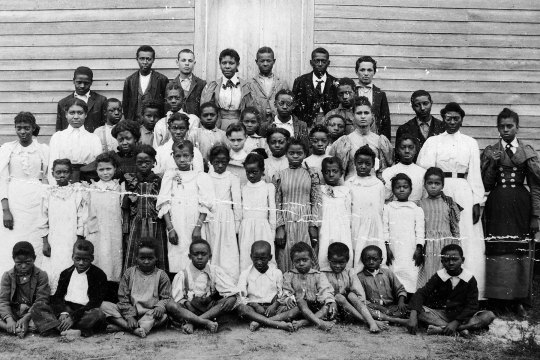
A slave name is the personal name given by others to an enslaved person, or a name inherited from enslaved ancestors. The modern use of the term applies mostly to African Americans and West Indians who are descended from enslaved Africans who retain their name given to their ancestors by the enslavers.

Changing from a slave name to a name embodying an African identity became common after emancipation in the 1960s by those in the African diaspora in the Americas seeking a reconnection to their African cultural roots

A number of African-Americans and Afro-Caribbeans have changed their names out of the belief that the names they were given at birth were slave names. An individual's name change often coincides with a religious conversion (Muhammad Ali changed his name from Cassius Clay, Malcolm X from Malcolm Little, and Louis Farrakhan changed his from Louis Eugene Walcott, for example) or involvement with the black nationalist movement (e.g., Amiri Baraka and Assata Shakur).
Some organizations encourage African-Americans to abandon their slave names. The Nation of Islam is perhaps the best-known of them. In his book, Message to the Blackman in America, Nation of Islam leader Elijah Muhammad writes often of slave names. Some of his comments include:
"You must remember that slave-names will keep you a slave in the eyes of the civilized world today. You have seen, and recently, that Africa and Asia will not honor you or give you any respect as long as you are called by the white man's name."
"You are still called by your slave-masters' names. By rights, by international rights, you belong to the white man of America. He knows that. You have never gotten out of the shackles of slavery. You are still in them."
The black nationalist US Organization also advocates for African-Americans to change their slave names
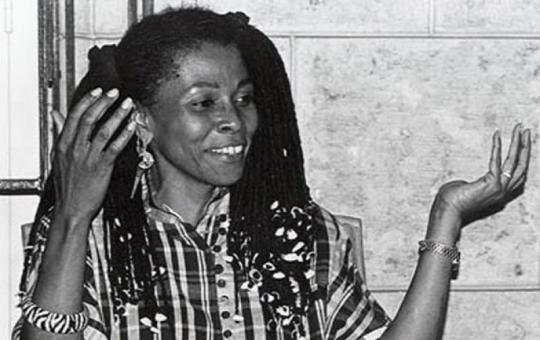
Assata Olugbala Shakur (born JoAnne Deborah Byron; July 16, 1947, sometimes referred to by her married surname Chesimard) is a former member of the Black Liberation Army, who was convicted of the first-degree murder of State Trooper Werner Foerster during a shootout on the New Jersey Turnpike in 1973. Shakur was also the target of the FBI's COINTELPRO program, a counterintelligence program directed towards Black Liberation groups and activists
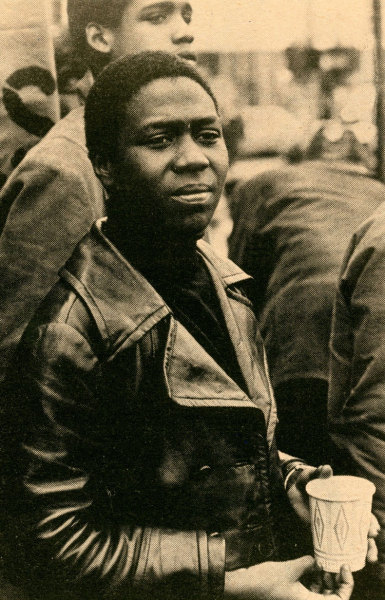
Afeni Shakur (born Alice Faye Williams; January 10, 1947 – May 2, 2016) was an American activist and businesswoman who was the mother of American rapper and actor Tupac Shakur.

Chaka Adunne Aduffe Yemoja Hodarhi Karifi Khan. Yvette Marie Stevens (born March 23, 1953), better known by her stage name Chaka Khan, is an American singer, songwriter and musician. Her career has spanned nearly five decades, beginning in the 1970s as the lead vocalist of the funk band Rufus. Khan received public attention for her vocals and image. Known as the Queen of Funk,Khan was the first R&B artist to have a crossover hit featuring a rapper, with "I Feel for You" in 1984. Khan has won ten Grammys and has sold an estimated 70 million records worldwide.
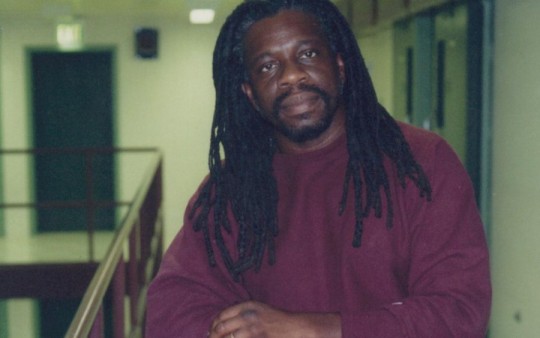
Mutulu Shakur (born Jeral Wayne Williams; August 8, 1950) is an American activist and former member of the Black Liberation Army, sentenced to sixty years in prison for his alleged involvement in a 1981 robbery of a Brinks armored truck in which a guard and two police officers were killed.
Shakur was politically active as a teen with the Revolutionary Action Movement (RAM) and later the black separatist movement the Republic of New Afrika. He was stepfather to the late rap artist Tupac Shakur.

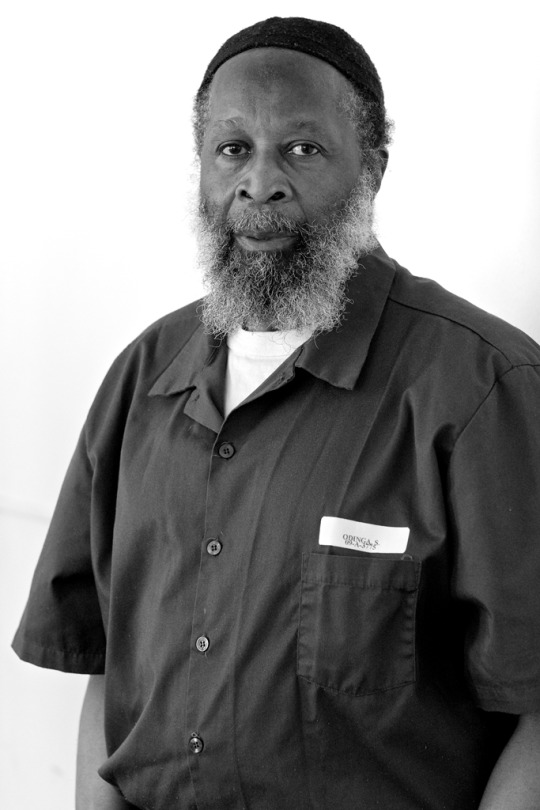
Sekou Odinga (born Nathanial Burns) is an American activist who was imprisoned for actions with the Black Liberation Army in the 1960s and 1970s.
In 1965, Sekou joined the Organization of Afro-American Unity (OAAU), founded by Malcolm X. After Malcolm's death the OAAU was not going in the direction he wanted and in 1967 he was looking at the Black Panther Party. In early 1968 he helped build the Bronx Black Panther Party. On January 17, 1969 two Panthers had been killed by members of Organization Us (a rival Black Nationalist group) and a fellow New York Panther who was in police custody was brutally beaten. Sekou was informed that police were searching for him in connection with a police shooting. At that point, Sekou joined the black underground with the Black Liberation Army.
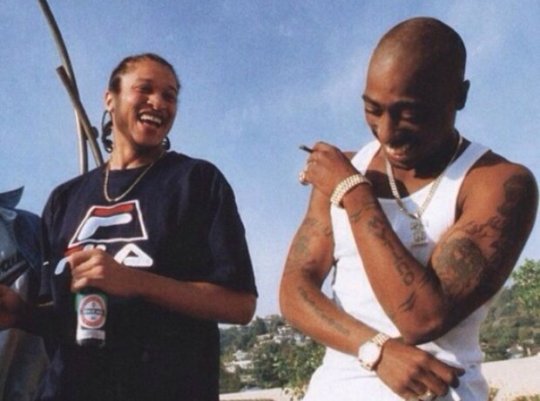
Yafeu Akiyele Fula (October 9, 1977 – November 10, 1996), better known by his stage name Yaki Kadafi, was an American rapper, and a founder and member of the rap groups Outlawz and Dramacydal. Kadafi's parents, Yaasmyn Fula and Sekou Odinga, were both members of the Black Panther Party. Fula and Tupac Shakur's mother, Afeni Shakur, were close friends, and Kadafi and Tupac were friends until their deaths in 1996.
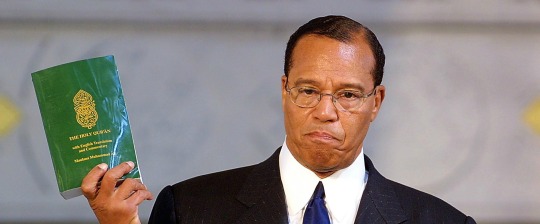
Louis Farrakhan Sr. ( born Louis Eugene Walcott; May 11, 1933), formerly known as Louis X, is an American minister who is the leader of the religious group Nation of Islam (NOI), which the Southern Poverty Law Center describes as a black nationalist group. Previously, he served as the minister of mosques in Boston and Harlem and had been appointed National Representative of the Nation of Islam by former NOI leader Elijah Muhammad.
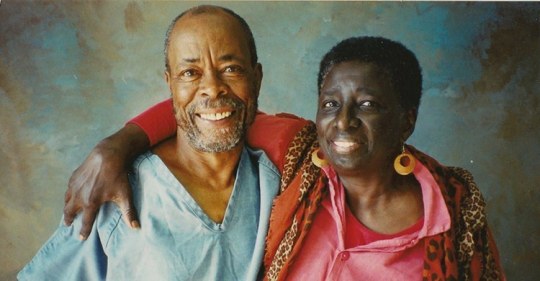
Sundiata Acoli (born January 14, 1937, as Clark Edward Squire) is a former member of the Black Panther Party and the Black Liberation Army. He was sentenced to life in prison in 1974 for murdering a New Jersey state trooper

Prince. Abdul-Rahman ibn Ibrahima Sori (Arabic: عبد الرحمن ابن ابراهيم سوري) (1762–1829) was a Fula nobleman and Amir (commander or governor) who was captured in the Fouta Jallon region of Guinea, West Africa, and sold to slave traders in the United States in 1788.[1] Upon discovering his noble lineage, his owner Thomas Foster began referring to him as "Prince",[2] a title he kept until his final days. After spending 40 years in slavery, he was freed in 1828 by order of U.S. President John Quincy Adams and Secretary of State Henry Clay, after the Sultan of Morocco requested his release.
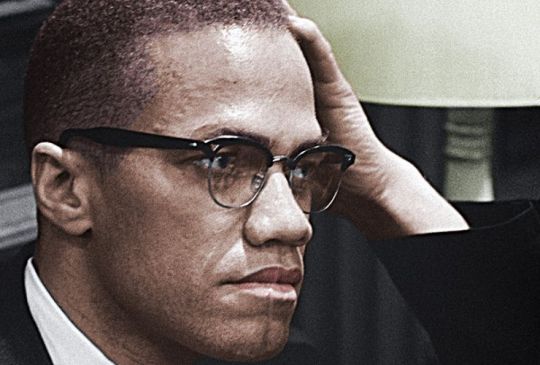
Omowale or Malcolm X (May 19, 1925 – February 21, 1965) was an American Muslim minister and human rights activist who was a popular figure during the civil rights movement. He is best known for his controversial advocacy for the rights of blacks; some consider him a man who indicted white America in the harshest terms for its crimes against black Americans, while others accused him of preaching racism and violence. He has been called one of the greatest and most influential African Americans in history.
Born Malcolm Little in Omaha, Nebraska, he spent his teenage years living in a series of foster homes following his father's death and his mother's hospitalization. Little engaged in several illicit activities, and was eventually sentenced to ten years in prison in 1946 for larceny and breaking and entering. In prison, he joined the Nation of Islam (NOI) and changed his name to Malcolm X because, he later wrote, Little was the name that "the white slavemaster ... had imposed upon [his] paternal forebears". After being paroled in 1952, he quickly became one of the organization's most influential leaders.
Expressing many regrets about his time with them, which he had come to regard as largely wasted, he instead embraced Sunni Islam. Malcolm X then began to advocate for racial integration and disavowed racism after completing Hajj, whereby he also became known as el-Hajj Malik el-Shabazz

Tupac Amaru Shakur; born Lesane Parish Crooks, June 16, 1971 – September 13, 1996), also known by his stage names 2Pac and Makaveli, was an American rapper and actor.He is considered by many to be one of the greatest rappers of all time. Much of Shakur's work has been noted for addressing contemporary social issues that plagued inner cities, and he is considered a symbol of resistance and activism against inequality

Kareem Abdul-Jabbar (born Ferdinand Lewis Alcindor Jr.; April 16, 1947) is an American retired professional basketball player who played 20 seasons in the National Basketball Association (NBA) for the Milwaukee Bucks and the Los Angeles Lakers. During his career as a center, Abdul-Jabbar was a record six-time NBA Most Valuable Player (MVP), a record 19-time NBA All-Star, a 15-time All-NBA selection, and an 11-time NBA All-Defensive Team member. A member of six NBA championship teams as a player and two more as an assistant coach, Abdul-Jabbar twice was voted NBA Finals MVP. In 1996, he was honored as one of the 50 Greatest Players in NBA History. NBA coach Pat Riley and players Isiah Thomas and Julius Erving have called him the greatest basketball player of all time
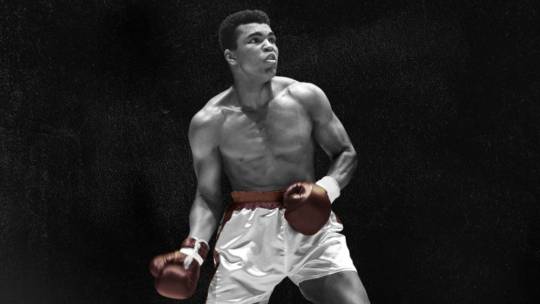
Muhammad Ali (/ɑːˈliː/; born Cassius Marcellus Clay Jr.;January 17, 1942 – June 3, 2016) was an American professional boxer, activist, and philanthropist. Nicknamed "The Greatest," he is widely regarded as one of the most significant and celebrated sports figures of the 20th century and as one of the greatest boxers of all time.

Kwame Ture (/ˈkwɑːmeɪ ˈtʊəreɪ/; born Stokely Standiford Churchill Carmichael, June 29, 1941 – November 15, 1998) was a prominent American socialist organizer in the civil rights movement in the United States and the global Pan-African movement. Born in Trinidad, he grew up in the United States from the age of 11 and became an activist while attending Howard University. He eventually developed the Black Power movement, first while leading the Student Nonviolent Coordinating Committee (SNCC), later serving as the "Honorary Prime Minister" of the Black Panther Party (BPP), and lastly as a leader of the All-African People's Revolutionary Party (A-APRP).

Amiri Baraka (born Everett LeRoi Jones; October 7, 1934 – January 9, 2014), previously known as LeRoi Jones and Imamu Amear Baraka, was an American writer of poetry, drama, fiction, essays and music criticism. He was the author of numerous books of poetry and taught at several universities, including the State University of New York at Buffalo and the State University of New York at Stony Brook. He received the PEN/Beyond Margins Award, in 2008 for Tales of the Out and the Gone
As long as you around here wearing the white men’s name bragging about this so called democracy, you will always be looked down up, by the rest of the world-Malcom X
#amiri baraka#everett leori jones#black panthers#names#name changes#tupac shakur#Muhammad Ali#african#african culture#african people#african american#assata shakur#afeni shakur#mutulu shakur#chaka khan#stokey#kwame ture#kwame#sekou#sekou odinga#brown skin#slave names#slaves#yaki#yaki kadafi#african people revolutionary#farrakhan#louis farrakhan#sundiata#malcolm x
7K notes
·
View notes
Audio
Waaju - Grown - another fruit of the fecund UK jazz scene (Olindo Records)
Pulsing Afro-Latin roots and UK jazz combine on Grown, the latest album by London-based quintet Waaju, released via Olindo Records. Fusing dexterous hand-percussion, hypnotic guitar riffs and soaring melodies, Waaju connect a wide range of traditional musics percolating at different corners of the global soundscape yet with a distinctly of-the-moment and British jazz flavour.
Led by drummer and percussionist Ben Brown (Alfa Mist, Dizraeli, Ashley Henry), and comprising members across the UK’s extensive music scene including, percussionist Ernesto Marichales (Jordan Rakei, Sigala), guitarist Tal Janes (Nubiyan Twist, Bahla), Sam Rapley (Fabled, Maria Chiara Argiro) and Joe Downard (China Moses, Judi Jackson), Waaju’s unique and divergent sound connects the dots between the likes of Beth Carvalho, Oscar D’Leon, Alain Peters and Los Muñequitos de Matanzas.
Waaju formed as a means of exploring music’s hidden connections, from trance-inducing Moroccan gnawa to Caribbean carnival music, and embracing them to reflect the different layers of London’s own musical culture. It was the band’s love for Mali’s folk music – and Ali Farka Touré’s stylistic prowess in particular – that first set the project in motion. London’s Jazz Cafe invited Waaju to reinterpret classic tracks from Farka Touré’s catalogue to sold-out audiences in 2018 and 2019. According to Brown: “Ali’s one of the best. He has such a unique sound. His playing is so gnarly. His spirit and attitude are things I always think of when making music.”
Waaju (meaning ‘to urge, inspire or influence to take action’ in Bambara) blend Latin polyrhythms, psychedelic Malian blues licks and dancefloor-oriented UK jazz arrangements. Following the group’s 2018 self-titled debut LP, Grown represents Waaju at their most distinctive and refined.
Ben Brown - drums, percussion
Sam Rapley - saxophone, shaker (track 4)
Tal Janes - guitar
Ernesto Marichales - congas, percussion
Joe Downard - bass
9 notes
·
View notes
Note
Hello Cat 🐱 and Mouse 🐭!! I hope you’re having a lovely week! I hope you don’t mind me curiously asking, but who are your favourite lgbtqia+ faceclaims with acting resources, please? :) Thank you so much in advance <3 :)
Non-binary:
Sara Ramirez (1975) Mexican, some Irish - is non-binary (they/them).
Ser Anzoategui (1979) Argentinian and Paraguayan - is non-binary (they/them).
Charlyne Yi (1986) Yuki, Kapampangan Filipino, Korean, Mexican, Spanish, Irish, French, and German - is non-binary (they/them).
Asia Kate Dillon (1984) Ashkenazi Jewish / Unspecified - is non-binary and pansexual (they/them).
Kiley May (1987) Cayuga, Mohawk - is a two-spirit and genderqueer trans woman (she/they).
Mae Martin (1987) - non-binary (they/she).
Nico Tortorella (1988) - is genderfluid, poly and pansexual (they/them).
Poppy Liu (1990) Chinese - non-binary (they/she).
Olly Alexander (1990) -is non-binary and gay (he/him).
Vico Ortiz (1991) Puerto Rican - non-binary (they/them).
Jayr Tinaco (1991) Filipino - non-binary (he/they).
Theo Germaine (1992) - is non-binary (he/they).
Dua Saleh (1994) Tunjur Sudanese - non-binary and queer (they/xe).
Bilal Baig (1995) Pakistani - is genderqueer (they/them).
Mason Alexander Park (1995) Mexican and White - non-binary (they/them).
Quintessa Swindell (1997) African-American / White - is non-binary (he/they).
Blu del Barrio (1997) Argentinian - is non-binary (they/them).
Chella Man (1998) Hongkonger and Jewish - is deaf, genderqueer and pansexual (he/him).
Sivan Alyra Rose (1999) Chiricahua Apache, Afro-Puerto Rican / Creole - genderfluid and pansexual (she/they).
Lizeth Selene (1999) Mexican - is genderfluid and queer (they/she).
Two Spirit:
Kali Reis (1986) Wampanoag, Nipmuc, Cherokee, and Cape Verdean - is two-spirit (she/her) and openly queer.
Kiley May (1987) Cayuga, Mohawk - is a two-spirit and genderqueer trans woman (she/they).
Ellyn Jade / Jade Willoughby (1990) Ojibwe, Afro Jamaican, Taíno, British - is two-spirit (she/her) - not straight otherwise unspecified, has nephrotic syndrome and celiac’s disease.
Women:
Dominique Jackson (1975) Afro-Tobagonian - trans.
Ivory Aquino (1979) Filipino - is trans.
Angelica Ross (1980) African-American - is trans.
Beth Ditto (1981) - is queer.
Yetide Badaki (1981) Yoruba Nigeiran - is bisexual.
Kate Siegel (1982) Russian Jewish, Moldovan Jewish, Polish Jewish, German Jewish - is bisexual.
T'Nia Miller (1985) Afro-Jamaican - is a lesbian.
Monica Raymund (1986) Dominican / English, Ashkenazi Jewish - is bisexual.
Poyd Treechada Petcharat (1986) Thai - is trans.
Alba Flores (1986) Romani, Spanish [including Andalusian] - is a lesbian.
Nicole Byer (1986) African-American - she doesn't identify as straight but is uncomfortable using labels.
Kiley May (1987) Cayuga, Mohawk - is a two-spirit and genderqueer trans woman (she/they).
Evan Rachel Wood (1987) - is bisexual.
Ali Stroker (1987) - is bisexual and parapelegic.
Michaela Coel (1987) Ghanaian - is aromantic.
Pearl Mackie (1987) Unspecified Afro-Caribbean / English - is bisexual.
Mae Whitman (1988) - is pansexual.
Megan Stalter (1990) - is bisexual.
Michaela Jaé Rodriguez (1991) African-American / African-American and Puerto Rican - is trans.
Denée Benton (1991) African-American - is bisexual.
Patti Harrison (1991) Vietnamese / White - is trans.
Beanie Feldstein (1993) Ashkenazi Jewish - is openly dating a woman but hasn’t labelled her sexuality publicly.
Beanie Feldstein (1993) Ashkenazi Jewish - doesn’t wish to label her sexuality but is openly dating another woman.
Jasmin Savoy Brown (1994) African-American / English, German, one quarter Norwegian, some Scots-Irish/Northern Irish - is a lesbian.
Bronwyn James (1994) - is queer.
Zión Moreno (1995) Mexican of Unspecified Indigenous and Spanish - is a trans.
Coty Camacho (1995) Mixtec and Zapotec - is pansexual.
Sasha Lane (1995) African-American / Unspecified Māori, Irish, Scottish, Cornish, English, Sorbian, French, German, Belgian, Dutch, Russian, Italian - is gay and has schizoaffective disorder.
Nicole Maines (1997) - is trans.
Mia Healey (1998) - is bisexual.
Erin Kellyman (1998) Afro-Jamaican / Irish - is a lesbian.
Star Slade (1999) Metis / Vietnamese - is pansexual.
Ella Hunt (1998) - is queer.
Savannah Lee Smith (2000) African-American, some websites says that she’s mixed - is bisexual.
Georgie Stone (2000) - is trans.
Celia Rose Gooding (2000) African-American - is bisexual and grey asexual, uses she/they.
Auli'I Cravalho (2000) 37.5% Puerto Rican, 31.25% Kānaka Maoli, 25% Portuguese, 4.6875% Chinese, 1.5625% Irish - is bisexual.
Josie Totah (2001) Palestinian / Lebanese, Italian, Irish, German - is trans.
Men:
Paco León (1974) - is bisexual.
Haaz Sleiman (1976) Lebanese - is gay.
Conrad Ricamora (1979) Filipino / German and Irish - is gay.
Ben Whishaw (1980) - is gay.
Brian Michael Smith (1983) African-American - is trans.
François Arnaud (1985) - is bisexual.
Hale Appleman (1986) Ashkenazi Jewish / Irish, English - is queer.
Ryan O'Connell (1986) - is gay and has cerebral palsy.
Joel Kim Booster (1988) Korean - is gay and has bipolar disorder.
Nyle DiMarco (1989) - is sexually fluid and deaf.
Harvey Guillén (1990) Mexican - is queer.
Bowen Yang (1990) Chinese - is gay.
Jake Borelli (1991) - is gay.
Jake Choi (1992) Korean - is sexually fluid.
Ronen Rubinstein (1993) Russian Jewish - is bisexual.
Connor Jessup (1994) - is gay.
Rafael L. Silva (1994) Brazilian - is gay.
Justice Smith (1995) African-American / Italian, French-Canadian - is queer.
Josh Castille (1995) - is gay and deaf.
Tyler Luke Cunningham (1995) Black British - is trans.
Jordan Gonzalez (1995) Cuban - is trans.
Sydney Mae Diaz (1995) Unspecified - is trans.
Leo Sheng (1996) Chinese - is trans.
Tyler Alvarez (1997) Cuban / Puerto Rican - is gay.
Omar Ayuso (1998) Morrocan and Spanish - is gay.
Nakayama Satsuki (1998) Japanese - is trans and asexual.
Bolded those who have no or few gif packs!
5 notes
·
View notes
Text
Discovering the world
Guyana 🇬🇾
Basic facts
Official name: Cooperative Republic of Guyana
Capital city: Georgetown
Population: 813,834 (2023)
Demonym: Guyanese
Type of government: unitary parliamentary republic
Head of state: Irfaan Ali (President)
Head of government: Mark Phillips (Prime Minister)
Gross domestic product (purchasing power parity): $63.82 billion (2023)
Gini coefficient of wealth inequality: 44.6% (medium) (2007)
Human Development Index: 0.742 (high) (2022)
Currency: Guyanese dollar (GYD)
Fun fact: It is home to the largest single-drop waterfall in the world.
Etymology
The country’s name comes from an indigenous word meaning “land of many waters”.
Geography
Guyana is located in South America and borders the Atlantic Ocean to the north, Suriname to the east, Brazil to the south, and Venezuela to the west.

There are three main climates: tropical rainforest in the north and southwest, tropical monsoon in the east and southeast, and dry-winter tropical savanna in the west. Temperatures range from 22 °C (71.6 °F) in winter to 33 °C (91.4 °F) in spring. The average annual temperature is 27.2 °C (80.9 °F).

The country is divided into ten regions. The largest cities in Guyana are Georgetown, Linden, New Amsterdam, Corriverton, and Bartica.

History
1581-1689: Colony of Pomeroon
1621-1812: Colony of Essequibo
1627-1831: Colony of Berbice
1745-1812: Colony of Demerara
1763: Berbice Rebellion
1812-1831: Colony of Demerara-Essequibo
1819-1831: Gran Colombia
1823: Demerara Rebellion
1831-1966: British Guiana
1966-1970: Guyana
1970-present: Cooperative Republic of Guyana
Economy
Guyana mainly imports from Singapore, the United States, and Trinidad and Tobago and exports to the United States, Singapore, and the United Arab Emirates. Its top exports are crude oil, rice, and alcohol.
It has significant bauxite, gold, and oil reserves. Services represent 69.3% of the GDP, followed by agriculture (15.4%) and industry (15.3%).

Guyana is a member of the Association of Caribbean States, the Caribbean Community, the Organization of American States, and the Union of South American Nations.
Demographics
39.8% of the population has Indian origins, 29.3% descends from Africans, 19.9% is multiracial, and 10.5% identifies as indigenous. The main religion is Christianity, practiced by 54.2% of the population, 55.6% of which is Protestant.

It has a negative net migration rate and a fertility rate of 2.3 children per woman. 27.2% of the population lives in urban areas. Life expectancy is 70.3 years and the median age is 26.2 years. The literacy rate is 90%.
Languages
The official language of the country is English, but Guyanese Creole is widely spoken. Arawak, Carib, Kapóng, Macushi, Mawayana, Pemon, Waiwai, Wapishana, and Warao are recognized regional languages.
Culture
Guyanese culture is more similar to Caribbean than South American culture. It contains a blend of African and Indian traditions.
Men traditionally wear a loose shirt and loose pants. Indian women wear a robe attached to the waist and shoulder (sari), loose pants (shalwar), and headscarf (orhni), while Afro-Guyanese women wear colorful dresses with patterns and a headwrap.

Architecture
Traditional houses in Guyana have painted wooden walls, tin roofs, and porches and balconies.

Cuisine
The Guyanese diet is based on fish, meat, rice, and vegetables. Typical dishes include catalina (a flattened cake made of coconut wheat flour), creamed shrimps (fried shrimps in a mixture of cream, eggs, and sherry with rice), fricasé (meat and vegetables pieces in egg or cream sauce), metemgee (a stew of banana and root vegetables in coconut milk), and pepper pot (a stew with cassareep, meat, and chili peppers).

Holidays and festivals
Like other Christian, Hindu, and Muslim countries, Guyana celebrates Holi, Good Friday, Easter Monday, Diwali, Christmas Day, Boxing Day, Mawlid, and Eid al-Adha. It also commemorates New Year’s Day and Labor Day.
Specific Guyanese holidays include Republic Day on February 23, Indian Arrival Day on May 5, Independence Day on May 26, CARICOM Day on the first Monday of July, and Emancipation Day on August 1.

Indian Arrival Day
Other celebrations include the Bartica Regatta; Mashramani, which features float parades and masquerades, and the Rupununi Rodeo, where rodeo competitions are held.

Mashramani
Landmarks
There are no UNESCO World Heritage Sites. Landmarks include Fort Zeelandia, the Georgetown City Hall, Shell Beach, St. George’s Cathedral, and the Stabroek Market.

Stabroek Market
Famous people
Aliann Pompey - athlete
Clive Lloyd - cricket player
Cyril Dabydeen - writer
Jan Shinebourne - writer
Letitia Wright - actress
Mahadai Das - poet
Marc Gomes - actor
Oscar Abrams - architect
Ramona Persaud - moviemaker and photographer
Rawle Marshall - basketball player

Cyril Dabydeen
You can find out more about life in Guyana in this article and this video.
#discoveringtheworld#langblr#arawak#carib#english#guyanese creole#kapóng#macushi#mawayana#pemon#waiwai#wapishana#warao
5 notes
·
View notes
Text
Red Baraat with The Higgs @ The Satellite (6/29/18) // Show Review
“The South Asian Red Wedding...Celebration is Coming.”
Article by Pam Gwen
Photos and video by Katy Carolyn Ramage

The Earth and The Moon are natural satellites that aren’t easy to miss. THE Satellite, however, is.
“Wait, wait, wait. Siri says we’ve passed it already.”
My best friends and I whip around Silver Lake Boulevard and finally spot the venue through the dim Marquee labeled, “FRI RED BARAAT & THE HIGGS” The valet driver charges us $5 dollars. Parking, for a bargain? In Los Angeles?! Ahhh, it’s the simple luxuries in life.
I spot a “Dreams of LA: Food and Spirits” sign, but it is an artifact of the past, worn-down and unlit. Today, the Satellite hosts up-and-coming local bands, comedy nights, and eclectic DJ nights from Gay Asstrology (Cancers enter FREE all Cancer season long) to Dance Yourself Clean (EVERY Saturday).
I motion our UCLA Radio giveaway winners to will-call and congratulate them on scoring tickets. On the dance floor, a crowd is swaying in unison to the Orange County cerebral jam band, the Higgs. The 4-piece band: John Lovero on guitar and vocals, Garrett Morris on drums, David Barsky on bass and vocals, and Jesse August Jennings on synth, keyboard, and organ. Named after the Higgs-Boson particle as it unifies a variety of forces. Similarly, the Higgs fuse the forces of progressive and alternative rock, blues, and reggae in their electrifying songs.

Jennings of The Higgs
Jennings is in his own planet, defying gravity with his fingers as he masterfully glides over his set-up. An electric fan blows his hair in an upwards direction towards a retro fluorescent sign labeled “The Higgs” with an astronaut perched on it. The influences of the Grateful Dead, Phish, and Wilco seep through the oscillating sounds of the Satellite. The Higgs grin at each other and bask in the glory of their alluring set.
My friends and I go up the stairs to the second bar and immediately, five of us sardines in the photo booth. After roaring at the comically claustrophobic photos, I peer through the Satellite’s glass wall that reveals the dance floor. I notice the legends of Red Baraat finally piling on stage.

Red Baraat
Sunny Jain, the frontman of Red Baraat, was born of immigrant Punjabi parents. Jain grew up in Rochester, New York which established his framework for music. His mother played Bhajans (in Hindu this means “sharing”), known for their spiritual ideas and melodic ragas (melodic structures for improvisation in Indian music). Sunny’s father constantly banged his Indian banjo and harmonium to classic Bollywood music. His Jainism background was also combined with the Western influence of his sibling’s love for progressive-rock, pop, and hip-hop.
At age 4, Sunny began learning North Indian percussion and rhythm. Sunny played the Indian tabla, but at age 12 he began learning the vocabulary of jazz through idols like Max Roach and Philly Joe Jones. Growing up, Sunny's teachers encouraged him to drop his Punjabi background and focus on American music theory. Nonetheless, when he began to compose his own music, he knew he wanted to celebrate the inclusivity of his musical backgrounds.
In 2005, Sunny brought his culturally encompassing music to the surface at his own….wedding. He melded North Indian rhythm Bhangra with jazz, rock, hip-hop, and funk along with 30 of his talented musician friends. They performed for Sunny’s baraat. In India and Pakistan, a baraat is a massive marching procession of the groom’s wedding party before they reach the wedding venue. It is a joyous celebration of brass music, singing, stomping, and hand-clapping that can last for 5 hours.
In 2010, Sunny wanted to spread South Asian wedding celebrations to the masses and thus, Red Baraat was born (his mustache, however, was born in 2012). The band name came to fruition because to Sunny, red is a symbol of love, energy, and revolution. They have inspired conservative elderly in walkers in Pennsylvania to get up and dance. Furthermore, they have split their audiences in halves for epic dance battles. The band has cited inspirations from Primus, Miles Davis, Flying Lotus, Gogol Bordello, and Gurdas Maan. NPR has asked Red Baraat to perform for their Tiny Desk Concert series twice and has dubbed them “the best party band in years.” Red Baraat has performed for Obama at the White House, Bonnaroo, the Paraolympics in London, globalFEST, and an exorbitant amount of South Asian weddings.
At the Satellite, Red Baraat begins with chaal rhythm in “Punjabi Wedding Song (Balle Balle)” off of Chaal Baby. The band’s sonic palate is bewitching. The 50-pound gold sousaphone Kenneth Bentley is breathing life and bass into is enchanting. The gigantic sousaphone looks as if it could be its own satellite, its vibrations orbiting the atmosphere of the stage. Unlike Desiigner in his song Panda, Sunny is yelling his version of “rrrrRRAAA” that I find loveable. Full of passion, Sunny freely parades on the stage with a dhol strapped on his shoulder, decorated by white rope and a plethora of black tassels. I have never been privy to a dhol and my initiation to it is mind-blowing. On the double-headed drum, Sunny crafts a tight stampeding pulsation with two uniquely curved sticks.
On June 29th, Red Baraat released their latest album, Sound the People, influenced by the South Asian diaspora. Recorded at Studio G in Brooklyn, New York, the album is Red Baraat’s battle cry -- written weeks after Trump’s inauguration. The patient percussion of “Ghadar Machao” produces goosebumps on my arms. Derived from Arabic, Ghadar means “revolution.” I feel as if I’m at a protest, ready and determined to line-up and congregate. My arms vigorously fist pump to Sonny Singh’s beckoning voice as he sings in Punjabi, to English, and even in Spanish. Red Baraat’s candor on the political climate invigorates the crowd to joyously mourn and mindfully release anger. “Ghadar Machao” is a superb folk anthem of immigrant solidarity.

Tears flow down my cheek, but I wipe them away as the dynamic beginning of “Hey Jamalo” off of Sound the People begins. Its cadence is trance-inducing and forces every single person in the room to dance. Hips are surging, feet are stomping, arms are flailing, and there’s headbanging everywhere. The blending of Sonny Singh’s trumpet and Jonathon Haffner’s soprano saxophone is consuming alongside Chris Eddleton’s explosive drumming. The elements of North Indian Bhangra, New Orleans brass, and ska-punk in “Hey Jamalo” obliterates every box Sunny was advised to conform to as a young musician.
Rays of electric blue light gleams on Jonathan Goldberger during his psychedelic rock guitar shredding on “Moray Gari Suno” off of Sound the People. The track is an homage to 1960’s Chutney music from Trinidad with flavors of Indian and Caribbean music. The charismatic synergy and variety of Sunny, Sonny, Jonathan, Kenneth, Jonathon, and Chris’ personalities permeate the raw energy of Red Baraat. Their individual expertise as a cohesive unit cultivates the visceral sonic textures and booming improvisations of their stellar performance.
Red Baraat falls silent and Sunny invites two personalities from the crowd for a dance-battle on stage. The dancers in the center front shy away to the corners, but a courageous fan in a green shirt gets on stage. A minute or two passes and worry falls on Sunny’s face. In that sliver of a moment, I knew it was time for me to put down my notebook and jump into battle. My pulse raced as I stared into the many eyeballs shooting at me from down below.
I closed my eyes and breathed into the present moment, “It’s a Friday night with no homework, work, responsibilities, and worries. You’re on stage with Red Baraat. You. Got. This.” I opened my eyes to all my best friends, partner, and the crowd cheering me on. In a flash, the raucous of “Shruggy Ji” embroiders itself into my veins and overtakes the entirety of my ligaments. I stare into my opponent’s eyes and we both laugh. The members of Red Baraat are smiling and parading around the stage. Accompanied by their presence on stage, I feel as if I’m floating and in a utopian dimension of ecstasy and triumph.

Pam Gwen, a dancing queen, with Red Baraat
As I disembark on stage and reenergize, Red Baraat is instantly revitalized and to the next song. Sunny powerfully grabs the mic and announces, “Now this next track is Punjabi bluegrass. The original track is “Gora Mukra” meaning “fair-skinned face”, but we’ve inverted it to “Kala Mukra” meaning “dark-skinned face.” It is an act of defiance against glamorizations of white skin, subjecting women’s potential to only marriage, and a bunch of other shit like that. Let’s party.” “
Ingrained with a colonial mentality growing up, I was adamant about scrubbing my brown skin off with papaya soap to achieve the fair-skin my Filipino culture idolized. In the past year, I have found that locating myself in my Filipinx heritage has helped me formulate who I can become. “Kala Mukra” is my hymn of postcolonial consciousness. Within each measure, I feel an inner emotional and spiritual catharsis.
“Kala Mukra” features Ali Sethi and is murderous and frenetic. The track’s preamble is Sonny, Jonathon, and Kenneth’s feverish trumpets, the heartbeat is Chris and Sunny’s frantic percussion, and Jonathan’s spiraling Afro-Carribean groove riff is the comedown.
As I look around the variety of beautiful skin colors around me, I find healing. As the bridge of “Apna Punjab Hove” begins, my friend, who hasn’t been dancing much tonight, begins tearing up the dance floor. My friends and I know that he is a professional Indian wedding dancer and we go berserk -- we’ve never seen him dance in the flesh before. As we circle around him, a woman in a kurti and another in a blue pin-up dress begin doing classical Indian dance moves. To their left, two men pair up and do Bhangra, a Punjabi-style dance. From beginning to end, Red Baraat puts its crowd into a loving trance, lulling us into hedonistic dancing for what seems like an eternity. Their infectious and magnetizing energy is an experience in itself. A sense of world peace is exposure to Red Baraat’s revolutionary and humanitarian virtuosity.
youtube
4 notes
·
View notes
Note
do you know some athletes or wrestlers with resources. i know that not many have resouces thanks
Male
Jackson Wang(24)Chinese
Bray Wyatt(31)White (Unspecified) & Native American (Unspecified)
Donnie Yen(54)Chinese
Will Yun Lee(47)Korean
Sinqua Walls(33)Black(Unspecified)
Raphaël Varane(25)Black(unspecified)
Bang Sung Hoon(35)Korean
Josh Sundquist(33)White(unspecified)
Taylor Lautner(26)Austrian, English, German, Swiss, French, Irish & Dutch
Ricardo Kaká(36)Portuguese & Brazillian
Justice Joslin(30)White(unspecified)
Dwayne Johnson(46)Black (unspecified), Irish & Samoan
Sam Hunt(33)English, Scottish, Irish
Leo Howard(20)English, Irish & Ashkenazi Jewish
Eden Hazard(27)Belgian(Walloon)
Yuzuru Hanyu(23)Japanese
David Luiz(31)Portuguese & Afro Brazilian
Jet Li(55)Chinese
Isaiah Mustafa(44)Black(unspecified)
Ashton Moio(26)Mexican & Italian
Mark McMorris(24)White (unspecified)
Alex Oxlade-Chamberlain(24)Afro Jamaican-English
CM Punk(39)Irish
Dudley O’Shaughnessy(28)English, Irish & Afro Caribbean
Randy Orton(38)White (unspecified)
Ryan Potter(22)Japanese, Swedish,English, German & Ashkenazi Jewish
Gerard Piqué(31) Catalan
Manuel Neuer(32)German
T.J. Perkins(33)Filipino
Matt Nable(46)White (unspecified)
Neymar Santos Jr.(26)Brazilian-African & Portuguese
Ryan Sheckler(28)German-English-Irish-Austrian
Ståle Sandbech(25)Norwegian
James Rodríguez(26)Colombian
Trevante Rhodes(28)Black (unspecified)
Marco Reus(29)White (unspecified)
Roman Reigns(33)Samoan-Italian
Kye Allums(28) Trans African-American
Female
Analeigh Tipton(29)White (unspecified)
Hope Solo(36)Italian, English, Polish, French & Hispanic (unspecified)
Ali Krieger(33)Italian & German
Maria Kanellis(36)Greek
Dot Marie Jones(53)White(unspecified)
Tobin Heath(30)White(unspecified)
Ashlyn Harris(32)White (unspecified)
Bella Hadid(21)Palestinian & Dutch
Stephanie McMahon(41)White(unspecified)
McKayla Maroney(22)Irish & English
Becky Lynch(31)White(unspecified)
Ashton Locklear(20)Lumbee
AJ Lee(31)Puarto Rican
Alex Morgan(28)Welsh, German & English
Maika Monroe(25)English, Irish & Scottish
Rosa Mendes(38)Czech & Costa Rican
Hirai Momo(21)Japanese
Aly Raisman(24)Ashkenazi Jewish
Amy Purdy(38)White (unspecified)
Christen Press(29) African-American & German
Kelley O'Hara(29) White (unspecified)
2 notes
·
View notes
Text
Democracy wins in Guyana and Suriname
FOR FIVE months Guyana has waited to see if the stand-off between its president, David Granger, and the opposition would end in violence, a coup or a peaceful transfer of power. On August 2nd peace prevailed. The Elections Commission declared that Irfaan Ali, the opposition’s candidate, had won the election held on March 2nd. He took office the same day.
Mr Ali had a minuscule lead on election day, but a disputed tally by the chief elections officer gave victory to Mr Granger. A drawn-out recount and legal battles followed. It looked as if Mr Granger, a former army brigadier, was determined to remain in office. He relented under pressure from other countries such as the United States and Britain, the former colonial power, plus regional organisations such as the Caribbean Community. Independent media and Guyana’s private sector lobbied for Mr Granger to go. His supporters plan a court fight, but have little prospect of success.
The transfer of power comes just as Guyana begins to cash in on massive offshore oil deposits (see chart). Thanks to them, the IMF expects the economy to grow by 53% this year. In a few years, South America’s third-poorest country, which has one of the world’s highest rates of emigration, will probably be one of its richest. The chance to control the bonanza raised the stakes in the bitter rivalry between Mr Granger’s mainly Afro-Guyanese coalition and Mr Ali’s mainly Indo-Guyanese People’s Progressive Party (PPP), which began before independence in 1966. The winner could hope to stay in power for decades.
It is hard to trust that the new government will spend the oil money wisely. The PPP’s 22 years in power before 2015 are remembered for corruption (as are the 28 years of rule before that by the People’s National Congress, now Mr Granger’s party). Bharrat Jagdeo, the president from 1999 to 2011, still calls the shots in the PPP and is the new vice-president. He chose Mr Ali, a former housing and water minister, as the party’s candidate because he could not run. Guyana’s Special Organised Crime Unit has charged Mr Ali with conspiracy and fraud. He denies the allegations, and promises honest management of the oil money.
The PPP has said it will dissolve the Natural Resource Fund, set up by Mr Granger’s government to receive oil revenue. It is supposed to release the money into the economy at a rate that does not drive the value of the currency to levels that would make other enterprises uncompetitive or overwhelm the capacity of Guyana’s weak institutions to spend it well. But it is not clear what the new government will replace it with, or when.
More than $90m, about 2% of last year’s GDP, is sitting in a bank account at the New York Federal Reserve. An early test of Mr Ali will be whether he bows to pressure to spend much of that money to bail out GuySuCo, the state-owned sugar producer, which is having trouble paying its wage bill. Mr Granger’s government had sought to reduce the firm’s losses by shutting down some money-losing estates, which contributed to his election loss. Mr Ali may be tempted to preserve unproductive jobs, mostly held by Indo-Guyanese workers. There are wiser ways to spend the money: on boosting infrastructure and education and on measures to protect the country from covid-19, which is spreading alarmingly, and from climate change. That might win over the half of Guyanese who did not vote for him.
Suriname’s new president, Chan Santokhi, also wondered whether he would take office after winning an election. His period of suspense was shorter. The vote took place on May 25th, and he was sworn in on July 16th. The doubt was whether President Desi Bouterse, who has dominated Suriname’s politics for more than 40 years and was convicted last year by a military court of murdering 15 political opponents in 1982, would yield power.
He did, but has left Mr Santokhi with a mess. Before leaving office Mr Bouterse gave public servants a 50% pay rise, which the government cannot afford. The budget deficit last year exceeded 10% of GDP. Mr Santokhi persuaded public-sector unions to wait for the pay rise. He has begged banks for cash, raised income-tax rates and deferred payment of a loan taken out last year to buy a hydroelectric dam.
Suriname, like Guyana, is an emerging petro-power. Apache, an American oil company, and its French partner, Total, announced this year three big oil finds offshore. Others are about to drill. Surinamese may share Guyanese worries over how well the windfall will be managed. Mr Santokhi is a former police commissioner and justice minister but the new vice-president, Ronnie Brunswijk, seems less strait-laced. He began his career as Mr Bouterse’s bodyguard, fought a guerrilla war against his former boss in the 1980s, and has been convicted by a Dutch court for cocaine smuggling. He owns a football club and a gold-mining business.
The oil will not flow for perhaps five years, which means that Mr Santokhi, whose term ends in 2025, may reap as little political benefit from it as the unlucky Mr Granger. The economy will shrink by 5% this year, reckons the IMF. Gold may help before the oil money arrives. It accounted for more than three-quarters of exports last year. Investors’ mistrust of the dollar has pushed its global price to a record high.
Dutch-speaking Suriname’s largest ethnic groups, like Guyana’s, are of African and Indian origin. But its political divide reflects attitudes to Mr Bouterse rather than ethnic identity. He has now left the scene. The fight over how to spend Suriname’s new riches, when they come, may be less bitter than Guyana’s. That, perhaps, is Suriname’s real gold.■
This article appeared in the The Americas section of the print edition under the headline "Oil futures"
https://ift.tt/3ktxzsS
0 notes